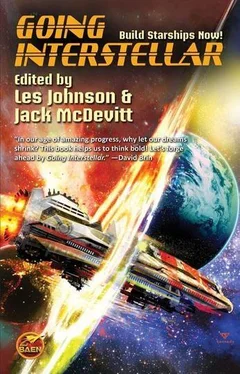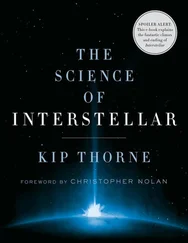“Still,” said the avatar, “mission protocol cannot be dismissed lightly.”
“It won’t hurt anything to let me use the main antenna for a few hours each day,” he insisted.
The avatar remained silent for several seconds: an enormous span of time for the computer program.
At last, the avatar conceded, “Perhaps so. You may use the main antenna, provisionally.”
“I am eternally grateful,” Ignatiev said. His sarcasm was wasted on the AI system.
As the weeks lengthened into months he found himself increasingly fascinated by the thin interstellar hydrogen gas and discovered, only to his mild surprise, that it was not evenly distributed in space.
Of course, astrophysicists had known for centuries that there are regions in space where the interstellar gas clumped so thickly and was so highly ionized that it glowed. Gaseous emission nebulae were common throughout the galaxy, although Ignatiev mentally corrected the misnomer: those nebulae actually consisted not of gas, but of plasma—gas that is highly ionized.
But here in the placid emptiness on the way to Gliese 581, Ignatiev found himself slowly becoming engrossed with the way that even the thin, bland neutral interstellar gas was not evenly distributed. Not at all. The hydrogen was thicker in some regions than in others.
This was hardly a new discovery, but from the vantagepoint of the starship inside the billowing interstellar clouds, the fine structure of the hydrogen became a thing of beauty in Ignatiev’s eyes. The interstellar gas didn’t merely hang there passively between the stars, it flowed: slowly, almost imperceptibly, but it drifted on currents shaped by the gravitational pull of the stars.
“That old writer was correct,” he muttered to himself as he studied the stream of interstellar hydrogen that the ship was cutting through. “There are currents in space.”
He tried to think of the writer’s name, but couldn’t come up with it. A Russian name, he recalled. But nothing more specific.
The more he studied the interstellar gas, the more captivated he became. He went days without playing a single game of chess. Weeks. The interstellar hydrogen gas wasn’t static, not at all. It was like a beautiful intricate lacework that flowed, fluttered, shifted in a stately silent pavane among the stars.
The clouds of hydrogen were like a tide of bubbling champagne, he saw, frothing slowly in rhythm to the heartbeats of the stars.
The astronomers back on Earth had no inkling of this. They looked at the general features of the interstellar gas scanned at ranges of kiloparsecs and more; they were interested in mapping the great sweep of the galaxy’s spiral arms. But here, traveling inside the wafting, drifting clouds, Ignatiev measured the detailed configuration of the interstellar hydrogen and found it beautiful.
He slumped back in his form-fitting desk chair, stunned at the splendor of it all. He thought of the magnificent panoramas he had seen of the cosmic span of the galaxies: loops and whorls of bright shining galaxies, each containing billions of stars, extending for megaparsecs, out to infinity, long strings of glowing lights surrounding vast bubbles of emptiness. The interstellar gas showed the same delicate complexity, in miniature: loops and whorls, streams and bubbles. It was truly, cosmically, beautiful.
“Fractal,” he muttered to himself. “The universe is one enormous fractal pattern.”
Then the artificial intelligence program intruded on his privacy. “Alexander Alexandrovich, the weekly staff meeting begins in ten minutes.”
Weekly staff meeting , Ignatiev grumbled inwardly as he hauled himself up from his desk chair. More like the weekly group therapy session for a gaggle of self-important juvenile delinquents.
He made his way grudgingly through the ship’s central passageway to the conference room, located next to the command center. Several other crew members were also heading along the gleaming, brushed-chrome walls and colorful carpeting of the passageway. They gave Ignatiev cheery, smiling greetings; he nodded or grunted at them.
As chief executive of the crew, Ignatiev took the chair at the head of the polished conference table. The others sauntered in leisurely. Nikki and Gregorian came in almost last and took seats at the end of the table, next to each other, close enough to hold hands.
These meetings were a pure waste of time, Ignatiev thought. Their ostensible purpose was to report on the ship’s performance, which any idiot could determine by casting half an eye at the digital readouts available on the ship’s display screens. The screens gave up-to-the-nanosecond details of every component of the ship’s equipment.
But no, mission protocol required that all twelve crew members must meet face-to-face once each week. Good psychology, the mission planners believed. An opportunity for human interchange, personal communications. A chance for whining and displays of overblown egos, Ignatiev thought. A chance for these sixty-year-old children to complain about one another.
Of the twelve of them, only Ignatiev and Nikki were physicists. Four of the others were engineers of various stripes, three were biologists, two psychotechnicians and one stocky, sour-faced woman a medical doctor.
So he was quite surprised when the redheaded young electrical engineer in charge of the ship’s power system started the meeting by reporting:
“I don’t know if any of you have noticed it yet, but the ship’s reduced our internal electrical power consumption by ten percent.”
Mild perplexity.
“Ten percent?”
“Why?”
“I haven’t noticed any reduction.”
The redhead waved his hands vaguely as he replied, “It’s mostly in peripheral areas. Your microwave ovens, for example. They’ve been powered down ten percent. Lights in unoccupied areas. Things like that.”
Curious, Ignatiev asked, “Why the reduction?”
His squarish face frowning slightly, the engineer replied, “From what Alice tells me, the density of the gas being scooped in for the generator has decreased slightly. Alice says it’s only a temporary condition. Nothing to worry about.”
Alice was the nickname these youngsters had given to the artificial intelligence program that actually ran the ship. Artificial Intelligence. AI. Alice Intellectual. Some even called the AI system Alice Imperatress. Ignatiev thought it childish nonsense.
“How long will this go on?” asked one of the biologists. “I’m incubating a batch of genetically-engineered algae for an experiment.”
“It shouldn’t be a problem,” the engineer said. Ignatiev thought he looked just the tiniest bit worried.
Surprisingly, Gregorian piped up. “A few of the uncrewed probes that went ahead of us also encountered power anomalies. They were temporary. No big problem.”
Ignatiev nodded but made a mental note to check on the situation. Six light years out from Earth, he thought, meant that every problem was a big one.
One of the psychotechs cleared her throat for attention, then announced, “Several of the crew members have failed to fill out their monthly performance evaluations. I know that some of you regard these evaluations as if they were school exams, but mission protocol—”
Ignatiev tuned her out, knowing that they would bicker over this drivel for half an hour, at least. He was too optimistic. The discussion became quite heated and lasted more than an hour.
Once the meeting finally ended, Ignatiev hurried back to his quarters and immediately looked up the mission logs of the six automated probes that had been sent to Gliese 581.
Gregorian was right, he saw. Half of the six probes had reported drops in their power systems, a partial failure of their fusion generators. Three of them. The malfunctions were only temporary, but they occurred at virtually the same point in the long voyage to Gliese 581.
Читать дальше












